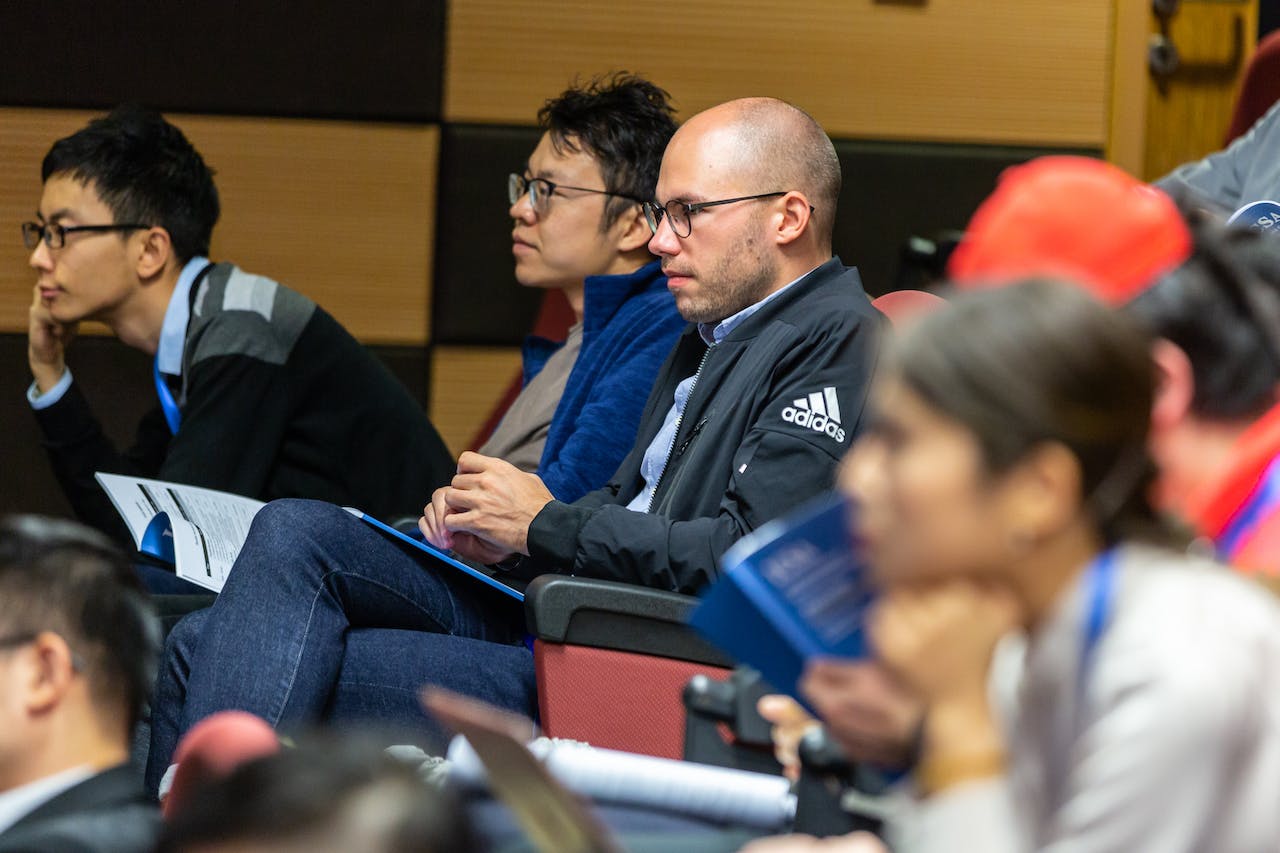
The Crucial Role of Research Universities in USA Innovation: Catalysts for Progress and Transformation
- Last Updated - 04/14/2024 - 11:54 AM
- Study in USA, Universities

In the dynamic landscape of higher education, research Universities in USA emerge as indispensable engines of innovation, propelling technological advancements and shaping the future trajectory of society. These institutions, with their unwavering commitment to cutting-edge research, span a diverse array of disciplines, fostering an environment where groundbreaking discoveries not only contribute to the academic tapestry but also find practical applications that reverberate across various facets of American life. This article delves into the multifaceted role of research universities, exploring the intricate web of their impact on innovation and how their endeavours resonate across the intricate tapestry of the nation’s progress.
The Innovation Ecosystem:
At the epicentre of the nation’s innovation ecosystem, research universities create vibrant hubs for revolutionary research. This intellectual crossroads, spanning disciplines from science and technology to the social sciences and humanities, fosters an environment conducive to innovation. The synergy among scholars, researchers, and students cultivates a dynamic space that not only propels academic discoveries but also enables their seamless translation into practical applications, thus driving societal progress.
Driving Technological Advancements:
A primary and formidable contribution of research universities lies in their role as vanguards propelling technological advancements. At the forefront of scientific inquiry, these institutions continually push the boundaries of knowledge, contributing significantly to the development of new technologies. Whether it’s groundbreaking medical discoveries transforming healthcare, advancements in artificial intelligence shaping the digital landscape, or pioneering research in renewable energy, research universities serve as crucibles of progress, constantly expanding the horizons of what is achievable.

The Intersection of Academia and Industry:
The symbiotic relationship between research universities and industry partners stands as a testament to the practical applications of academic research. This collaboration, essential for bridging the gap between theoretical knowledge and real-world applications, is crucial for the commercialization of innovations emanating from university laboratories. The transfer of technology and knowledge from research universities to industries not only enhances the global competitiveness of the United States but also facilitates the practical application of cutting-edge research across diverse sectors.
Training the Next Generation of Innovators:
Beyond their direct contributions to research and technology, research universities play a pivotal role in nurturing the next generation of innovators. Through hands-on research opportunities, mentorship programs, and interdisciplinary collaboration, students in these institutions are not merely recipients of knowledge but active participants in the advancement of their respective fields. This experiential learning equips students with the skills necessary for research and instils a mindset of curiosity and innovation that extends beyond the academic setting, preparing them to be leaders in their chosen disciplines.
Addressing Societal Challenges:
Research universities are uniquely positioned to address complex societal challenges. Whether finding sustainable solutions to pressing environmental issues, developing strategies for inclusive economic growth, or addressing public health crises, these institutions bring together experts from diverse fields to collaborate on multifaceted problems. The interdisciplinary nature of research at universities allows for comprehensive approaches to societal challenges, fostering holistic solutions that consider economic, ethical, and social implications.
Challenges and Opportunities:
While research universities stand as bastions of innovation, they are not immune to challenges. Issues such as maintaining funding, fostering collaboration, and addressing ethical considerations associated with cutting-edge research pose ongoing challenges. Balancing the pursuit of knowledge with societal responsibilities requires a nuanced and strategic approach. Nevertheless, these challenges also present opportunities for innovation in institutional structures, funding models, and collaboration frameworks. Finding sustainable solutions to these challenges is crucial for ensuring the continued impact of research universities on innovation.
The Global Perspective:
Research universities in the United States do not operate in isolation; they are integral players in the global landscape of knowledge creation and dissemination. International collaboration enhances the reach and impact of research conducted at these institutions. Global partnerships allow for the exchange of ideas, expertise, and resources, fostering a collaborative environment that transcends geographical boundaries. As the world becomes increasingly interconnected, research universities play a crucial role in addressing global challenges that require collaborative solutions.
Conclusion:
In conclusion, research universities stand as beacons of innovation, pushing the boundaries of knowledge and contributing significantly to societal progress. Their impact extends far beyond the confines of laboratories and lecture halls, influencing the technologies we use, shaping the policies we implement, and moulding our approach to global challenges. As these institutions continue to evolve, their role in driving innovation in the United States remains not just crucial but transformative. In the interconnected world of academia, industry, and society, research universities serve as catalysts for change, inspiring generations of innovators to build a brighter, more advanced, and socially impactful tomorrow. The global perspective further underscores their importance as key players in shaping the future of innovation on a worldwide scale.
You might like these..
Randomly chosen articles that you might like.

Cultivating Change: The Vital Role of Universities in Promoting Sustainability and Environmental Consciousness
Universities play an integral role in shaping the beliefs behavior, values, and behaviors of the next generation. In an age of

Best Data Science Course Online in India 2024
Introduction: Data is now the currency of innovation and progress in the age of digitization. A record of every transaction, click,

The Pinnacle of Education: Why USA Universities Stand Out Globally!
In the vast landscape of higher education, USA universities emerge as beacons of excellence, attracting students from every corner of

Choosing the Best University in USA: A Guide to Select the Top USA Universities.
Choosing the best University in USA is a crucial choice that will have a big impact on your educational journey

Anyone from India can apply to USA Universities. Yah! It’s easy.
Yes, individuals from India can certainly apply to USA Universities. The application process for U.S. universities can be competitive and

USA Universities are great in terms of Sports as well as education. Yes, You heard it right!
The perception that USA Universities are great in terms of education and sports is shaped by several factors. Here are

Best Universities in USA, You can apply. Yes, it’s correct.
Determining the Best Universities in USA can depend on various factors such as academic programs, faculty expertise, resources, location, and

How to Apply to Any University in USA, Super easy, very simple, and effective.
You can successfully navigate the application process to University in USA with a little planning and attention. Here is a guide

How to apply at Top Universities 2023, follow these steps.
Applying to Top Universities 2023 in USA typically involves several steps. Here’s a general guide to help you through the

USA Universities are not good, Is this correct? discuss.
USA Universities are home to many prestigious universities and research institutions that are globally recognized for their academic excellence and

You should not do this If you get a chance to USA university. Try them now!
Starting university in a new country, especially the United States, can be an exciting but challenging experience. Here are some

Most Common Mistakes while searching for a new University in the USA, Stay Safe.
While searching for University in the USA, students may make common mistakes that can impact their decision-making process and overall

USA Universities are not good! Says the expert, is that correct?
Certainly! Here’s a more detailed exploration, broken down into Reality of USA Universities, to provide a comprehensive understanding of the

Why and how USA universities become so Popular? Something wrong here.
The popularity of USA Universities can be explained in simple terms through a variety of factors. Let’s break it down:

Why does everyone blindly trust Universities in USA?
While it may not be accurate to say that everyone blindly trusts Universities in USA, there are several reasons why

New Academic Updated! USA Universities are not evolving?
USA Universities are constantly innovating and developing new academic programs to meet the evolving needs of students and the demands




